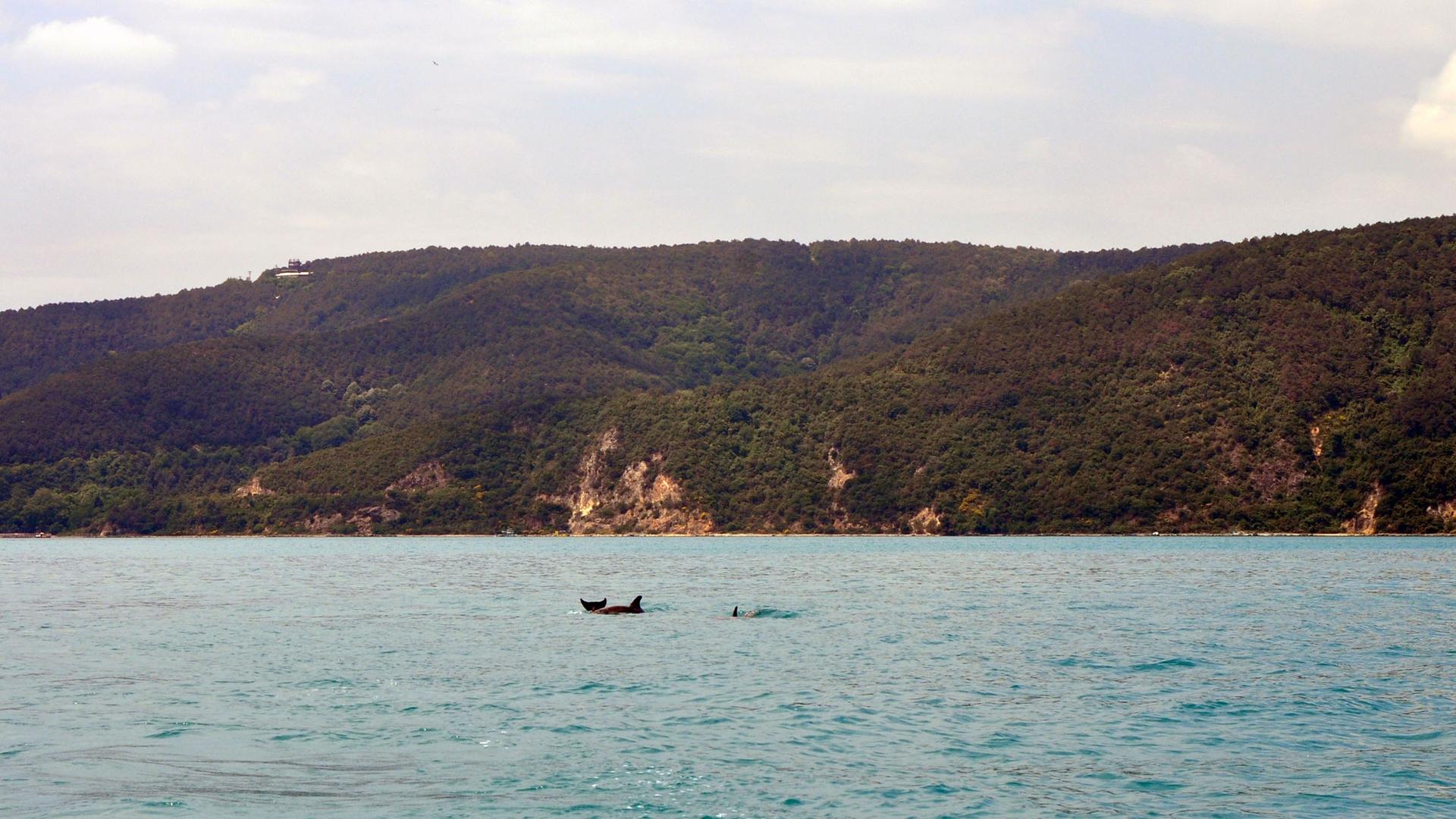A spate of dolphin deaths in the Black Sea prompts scientists to search for answers
When looking for dolphins, follow the birds.
That’s the advice of marine biologist Ayaka Öztürk, who spends her days observing dolphins swimming in the waters of Turkey’s Bosphorus Strait.
On one outing, Öztürk and her colleagues from the Turkish Marine Research Foundation (TUDAV) watched a small pod of dolphins with their calves swimming through one of the world’s busiest commercial shipping lanes.
“The dolphins are feeding on the fish, so the fish come up to the surface and the birds can also feed on them,” Öztürk said. “Birds follow dolphins and we follow the birds!”
But lately, the Black Sea has spelled troubled waters for the dolphins. Since February, hundreds of dolphins have been found dead along the coasts of Ukraine, Bulgaria and Turkey. And scientists have pointed to the war in Ukraine as a possible cause.
Some dolphins have gotten entangled in fishing nets and washed ashore in a phenomenon known as “strandings.” Scientists speculate that navy sonar systems used to locate other vessels hundreds of feet under water are creating powerful sounds that disorient marine animals.
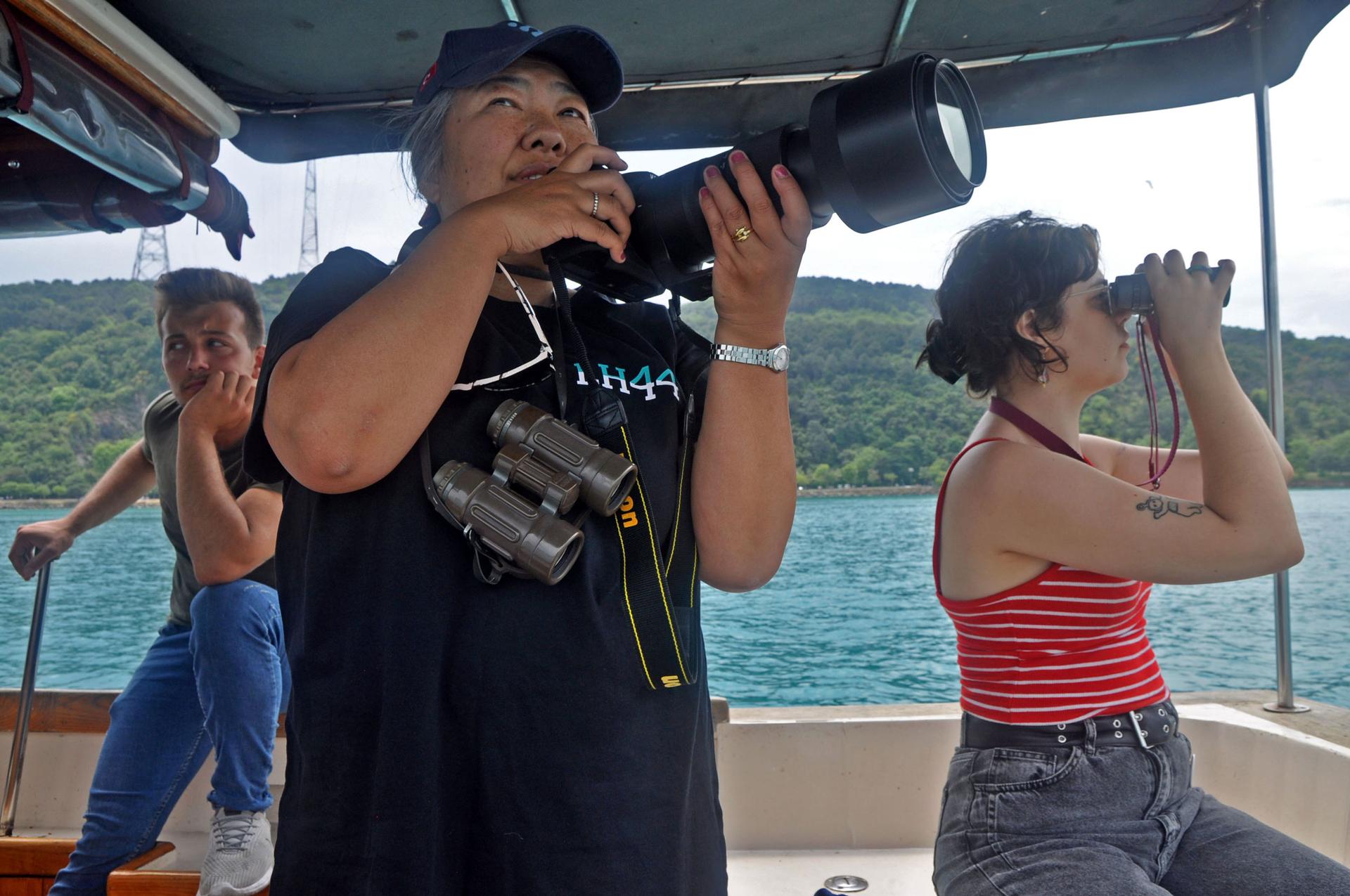
In just the first month of the war, scientists counted more than 80 dolphin deaths along the Turkish coast, an “extraordinary increase,” TUDAV reported.
In normal times, there would only be a few.
Pre-war estimates put the Black Sea dolphin population near 253,000.
According to Öztürk, the fact that common dolphins and bottlenose dolphins are being caught in fishing nets is odd, because they tend to know how to swim out.
The Turkish coast sits some 400 miles from the coast of Ukraine, on the southern edge of the Black Sea.
Many dolphins also live in the narrow, polluted waters of the Bosphorus Strait — dodging oil tankers and litter from Istanbul’s 16 million people.
Twice a month, Öztürk’s team completes a survey trip with cameras in tow, hoping to better understand if the dolphins they see are long-term residents or new arrivals from the north.
Anecdotally, Öztürk said, she’s seeing an unusually high number of common dolphins in the Bosphorus Strait; a species that tends to prefer deeper, open waters. This could mean they’re seeking refuge from unusual activity in the Black Sea.
Or they could be following higher than usual volumes of fish.
“This year, they tend to stay around. Which is unusual,” Öztürk said. “But we don’t really know.”
We’ll have to ask them, she laughed.
Related: At the mouth of the Black Sea, a ship spotter watches for clues amid Ukraine war
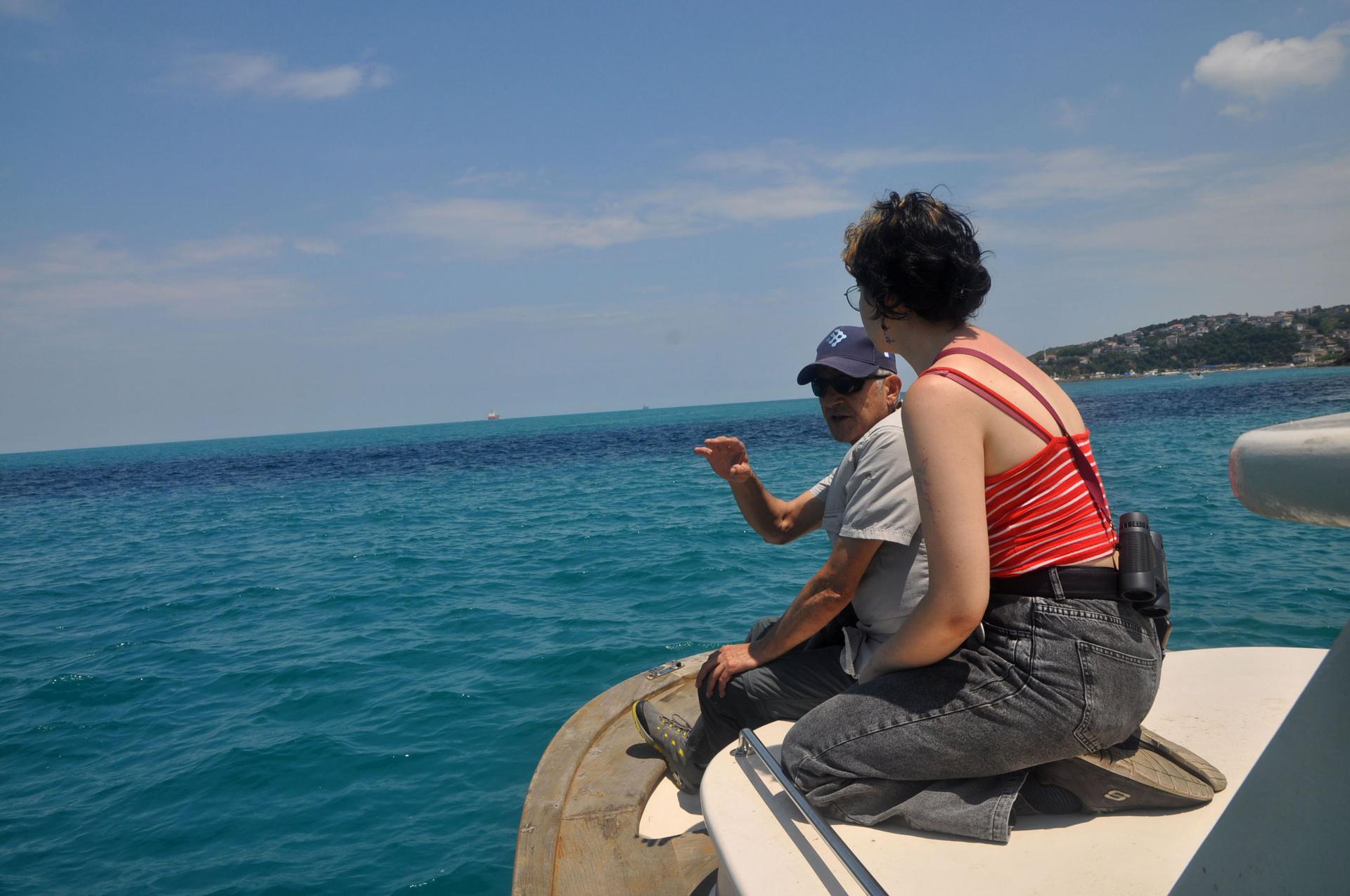
Listening to dolphins
To hear the dolphins’ vocalizations, the researchers have installed hydrophones (underwater microphones) in the Bosphorus.
“It’s this multisensory noise,” said Dr. Ayhan Dede, a marine biologist with TUDAV and Istanbul University. “It’s unbelievable.”
Dolphins use echolocation to hunt, navigate, and avoid predators – especially in murky waters. Their hearing is sensitive, and when damaged, it can be life-threatening.
That’s why the underwater navy sonar systems used in the Russian invasion of Ukraine are being strongly considered as the source of the problem.
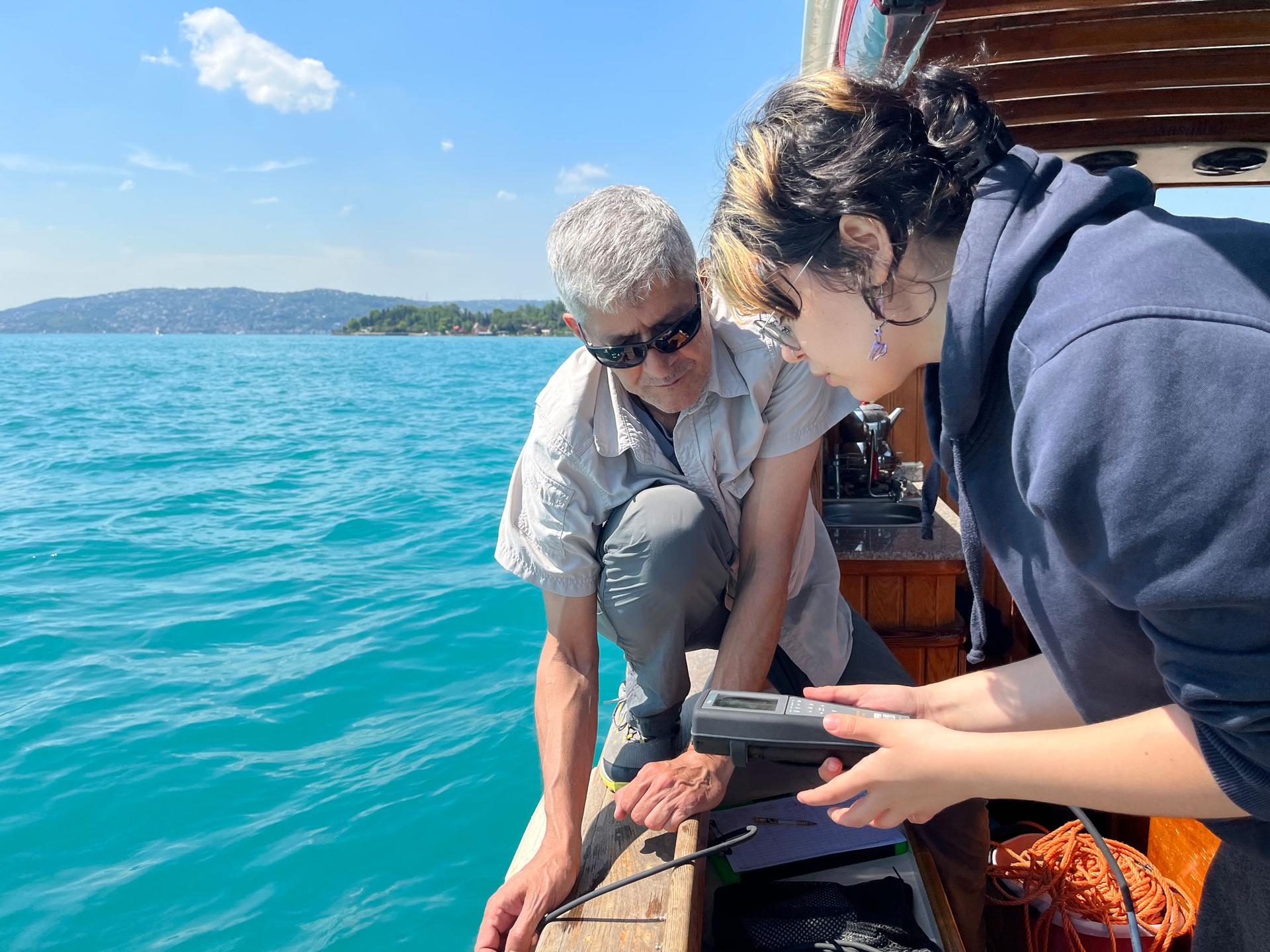
Simon Elwen, director of the South Africa-based Sea Search, said that their research on underwater mammals exposed to naval exercises shows that they respond to loud sonar as they would to a killer whale attack.
“Essentially, they get a big fright, they rush to the surface, and they scatter,” Elwen said.
Deep diving animals that surface too quickly can experience decompression sickness the same way a scuba diver might, Elwen said.
In shallower water, explosions or loud noises can permanently damage a dolphin’s hearing – and therefore their ability to use echolocation to hunt, navigate, and find each other.
“Behavioral changes like that can result in moving away from normal habitat, and – what seems to be happening in the Black Sea — getting caught in fishing nets because they aren’t familiar with the area, or panicking and not paying attention, or impaired hearing,” Elwen said.
This research was done during naval exercises in peacetime, in controlled settings, he cautioned.
“You can imagine that in war, a lot of the health and safety and environmental protocols do fall aside,” Elwen said.
Proving that a dolphin has suffered acoustic trauma is difficult.
Scientists must take a sample from the animal’s inner ear within 24 hours of the animal’s death. There are only a few specialized labs in Europe with the ability to analyze the samples, which requires an export permit.
“Behavioral changes like that can result in moving away from normal habitat, and – what seems to be happening in the Black Sea — getting caught in fishing nets because they aren’t familiar with the area, or panicking and not paying attention, or impaired hearing.”
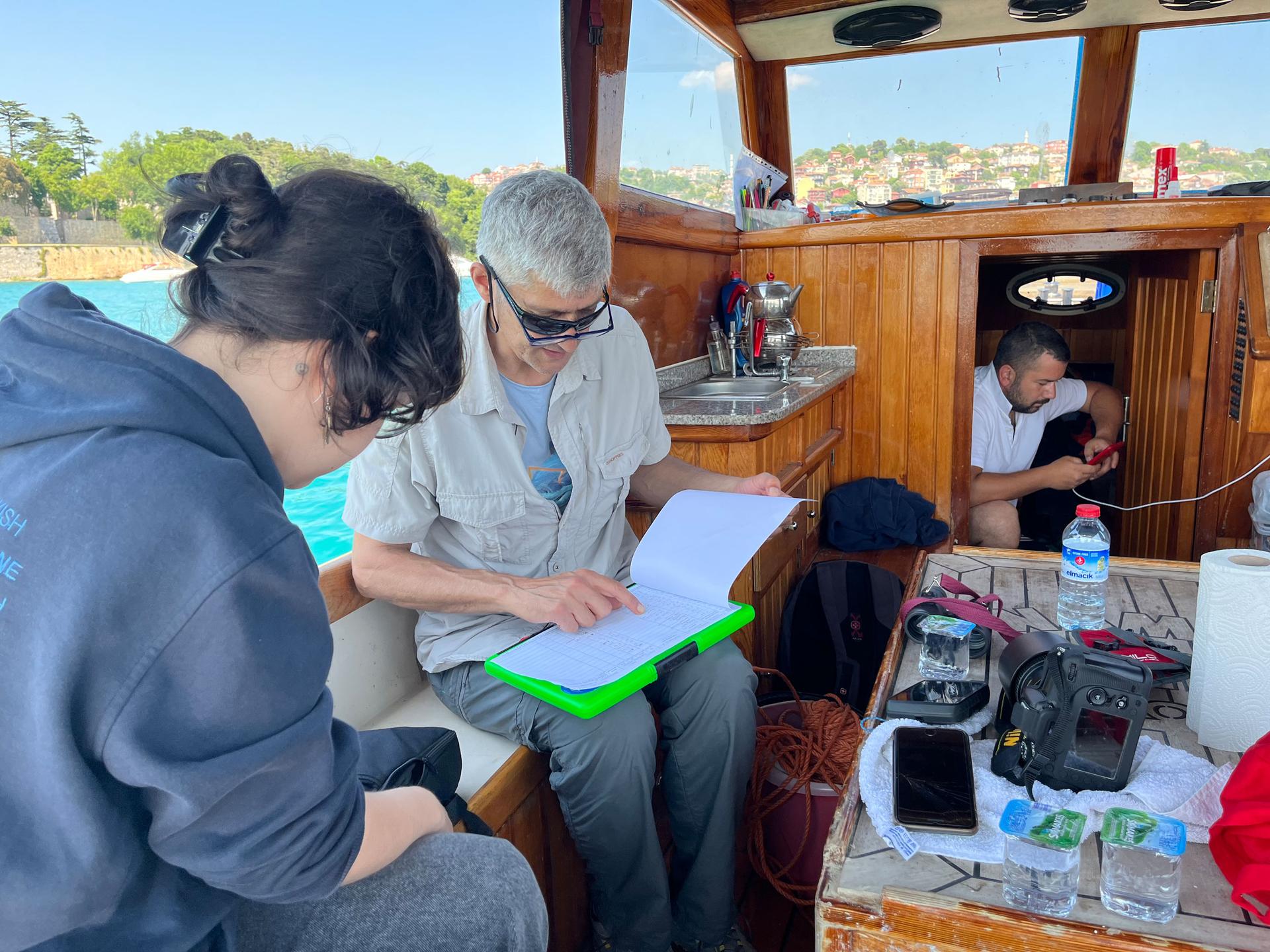
Distressed dolphins
Öztürk and her team remain on the lookout for dolphins in distress.
She’s in regular touch with city cleanup crews, fishermen and the Turkish Coast Guard, who alert her when they find a stranded dolphin.
So far, she’s found one dolphin washed ashore who was pregnant and near term – her belly full of fish.
She was healthy, Öztürk said, but somehow got entangled in a fishing net and suffocated.
“It was very, very heartbreaking,” Öztürk said.
Dolphins can stay underwater for long periods of time but must reach the surface to breathe.
Did this dolphin die because her hearing was damaged in the war?
Öztürk said it’s too soon to say.
Alternative causes of death — like disease or pollution — still have to be ruled out.
“We just have to keep monitoring what’s going on,” Öztürk said. For now, she said, it’s a strong hypothesis.
